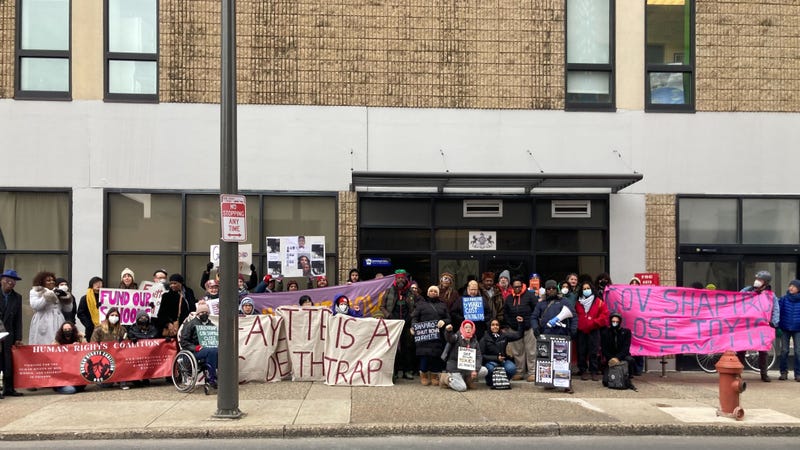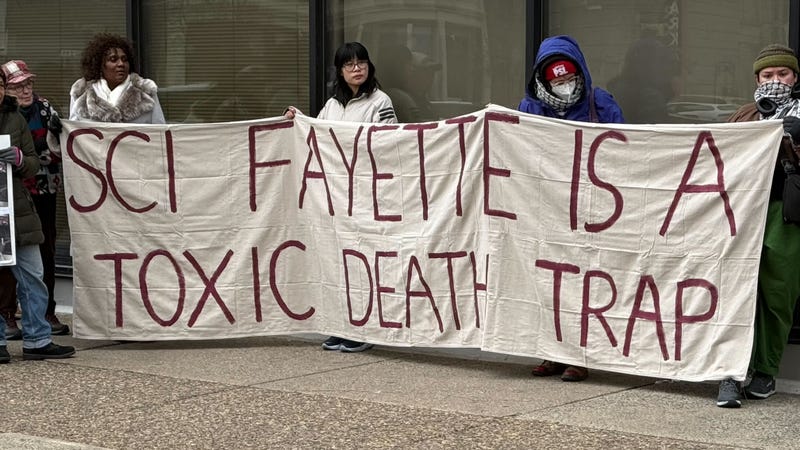
PHILADELPHIA (KYW Newsradio) — After Gov. Josh Shapiro’s budget proposal called for the closure of two state prisons to save taxpayer dollars, several groups organized a march in the city on Saturday for prisoner rights and the closure two specific facilities.
The governor hasn’t said which prisons he plans to close yet, but advocates say SCI Fayette and SCI Huntington are two of the state’s worst-off prison facilities.
Leaders from several groups, including the city’s Human Rights Coalition and the Philly Muslim Freedom Fund, began with a rally in LOVE Park, before marching to Shapiro’s Philadelphia offices at 8th and Arch streets.
Shakaboona Marshall, executive director of the city’s Human Rights Coalition, says SCI Fayette is literally toxic.
“SCI Fayette is located on a Superfund site—the result of decades of hazardous coal fly ash dumping: 500 million tons of toxic waste poisoning the land, the water and the air, Marshall said. “This prison was built on this dangerous site with little regard for the health and safety of its inhabitants.”

Organizers say aging SCI Huntingdon is becoming more and more dangerous.
“SCI Huntington, that particular prison has been in existence for over 100 years. It has asbestos in it, black mold, the roof is falling down. They have contaminated water,” said Marshall.
Jackson Kusiak, with the Human Rights Coalition says the movement to shut down these prisons started with the people incarcerated there.
“It wasn't us who started it here on the outside,” Kusiak said. “I was started by 15 men who were in long-term solitary confinement at SCl Fayette. And when I say ‘long-term solitary confinement,’ I mean 15 years.”
Another organizer, Lorraine Haw, read aloud from a letter written by a person incarcerated in one of the facilities after being there for two weeks.
“First off, every day since l've been here, I've been given a spoiled milk. The water here is no good and has come out of the sink brown.”
B.P. Lyles, the lead organizer and project director for Toxic Prison Campaign at the Human Rights Coalition, says there must be alternatives to a prison cell.
“Somehow they're finally figuring out that we are wasting too much money caging our brothers and sisters, and there are better ways, and we've got to get to it.”
